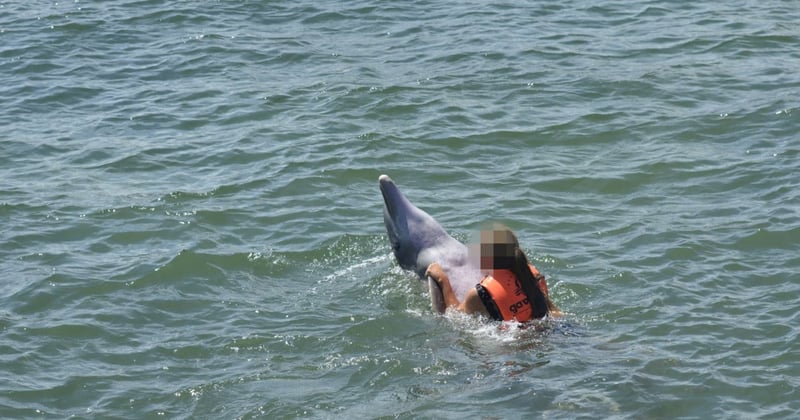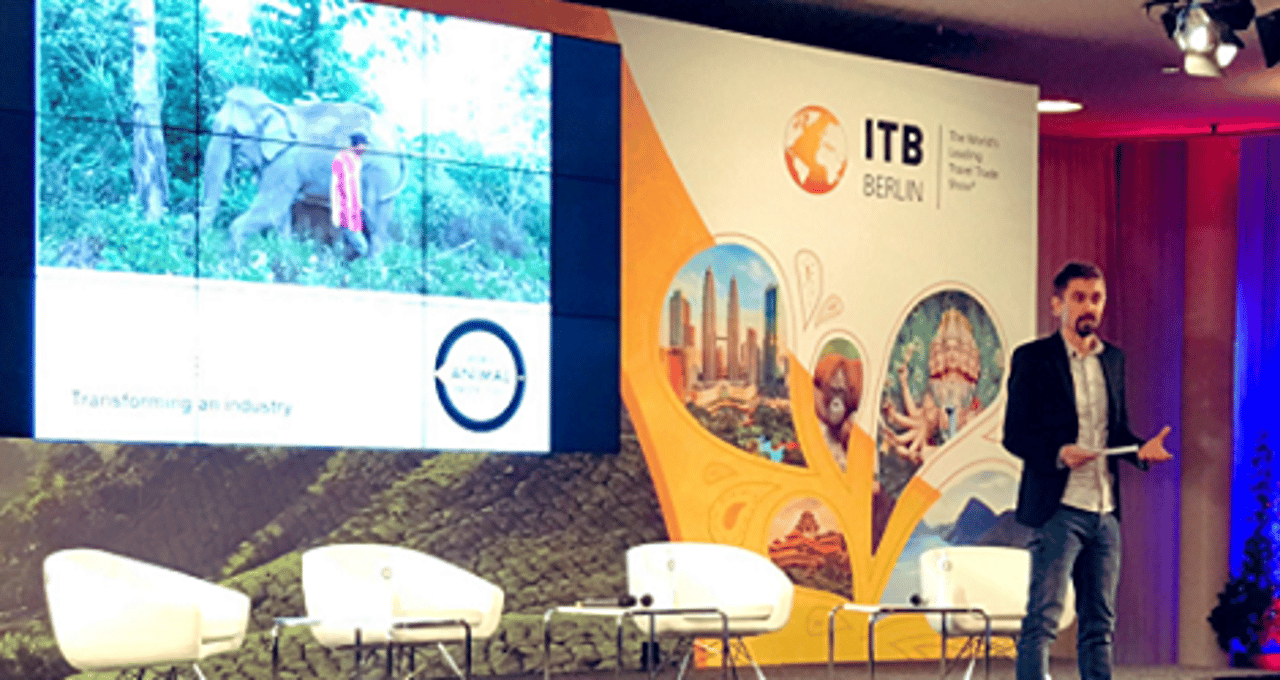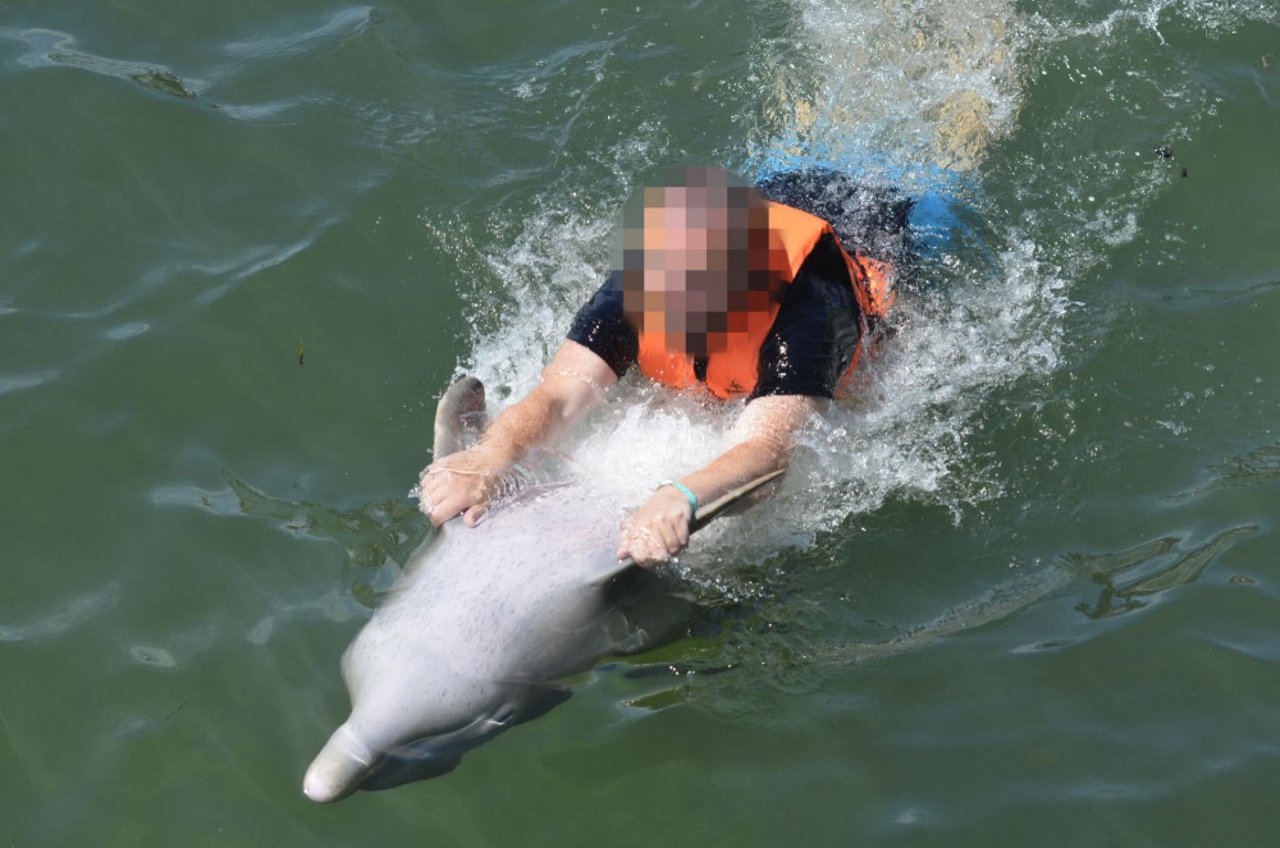
Thousands of captive whales, dolphins and other marine mammals still suffering in 2019
News
We released our updated Case Against Marine Mammals in Captivity report at ITB Berlin, one of the largest travel events, to encourage the industry to help end the cruel captivity of marine mammals for entertainment
ITB Berlin identifies as the world's leading tourism trade fair, with exhibitors from industry giants from all over the world. Among them this year was our very own Wildlife. Not Entertainers team, with a session on ethical wildlife tourism.
Nick Stewart, our Global Head of Campaign – Dolphins (pictured above), hosted a lively panel discussion with other wildlife experts, and travel industry leaders. The discussion was the perfect demonstration of how we can move the industry to transform their practices and improve the lives of animals, promoting ethical and cruelty-free tourism. This work is a continuation of our previous successes, including moving travel companies to support elephant-friendly venues, asking Instagram to end cruel wildlife selfies, and partnering with travel companies like The Travel Corporation and G Adventures to protect animals in the tourism industry.
Captivity is cruelty
We also launched our updated Case Against Marine Mammals report at the trade show, presented by lead author Dr Naomi Rose, Marine Mammal Scientist at the Animal Welfare Institute. Dr. Rose's persuasive presentation destroyed the myths of the marine park industry and offered a productive way forward for captive marine mammals and businesses.
Revealed in the report
It’s a shocking portrait of the behind-the-scenes cruelty of zoos, aquariums, and marine theme parks that trade and exploit captive marine mammals for entertainment.
Keeping marine mammals captive, whether captured from the wild or bred in captivity, causes immense suffering – from capture, to transport, to a lifelong existence in small barren tanks.
- Wild cetaceans (whales and dolphins) travel 64-160 kilometers a day, achieve speeds of 48 kilometers per hour, and dive hundreds of feet deep. Even in the largest facilities, they have less than 0.0001% (one millionth) of their natural habitat range.
- One 2014 study found that a captive male orca spent nearly 70% of his time virtually motionless.
- Captive marine mammals suffer from a huge range of health problems, including extreme stress, neurotic behaviours and abnormal levels of aggression.
- Bottlenose dolphins are six times more likely to die immediately after capture from the wild and transfer between facilities.
- Annual mortality rates for captive orcas have improved over the years, but they still don’t match healthy populations in the wild.
- The number of ocean theme parks in China has jumped from 39 in 2015 to 76 in early 2019.
- Dolphin sea pen enclosures in Asia and the Caribbean are at extreme risk from hurricanes and tsunamis, and damage the environment, including coral reefs and mangroves.
Click here to learn more and read the report.
Tourist riding a dolphin in Cuba
Life in captivity is no life at all
Nick Stewart, our Global Head of Campaigns says: “The life in captivity for marine mammals such as dolphins is so contrary to their natural lives. A life in captivity is simply no life at all."
“Tourists and the global travel industry are a key source of demand for existing and new captive marine mammal facilities, which is why we have chosen to launch the report at one of the world’s biggest travel shows.”
Working with the industry
We are excited to continue working with travel companies, such as those at ITB Berlin, to educate leaders about the suffering endured by captive marine mammals, and the steps the industry can take to become a part of the solution to this global problem.
You can help
Don't take part in cruel marine animal tourism. Avoid venues that keep marine animals on display, have shows for tourist entertainment, or allow you to hug or swim with the animals. By not participating, you help send the message that cruel marine animal tourism is unacceptable.
“The life in captivity for marine mammals such as dolphins is so contrary to their natural lives. - Nick Stewart, Global Head of Campaigns

